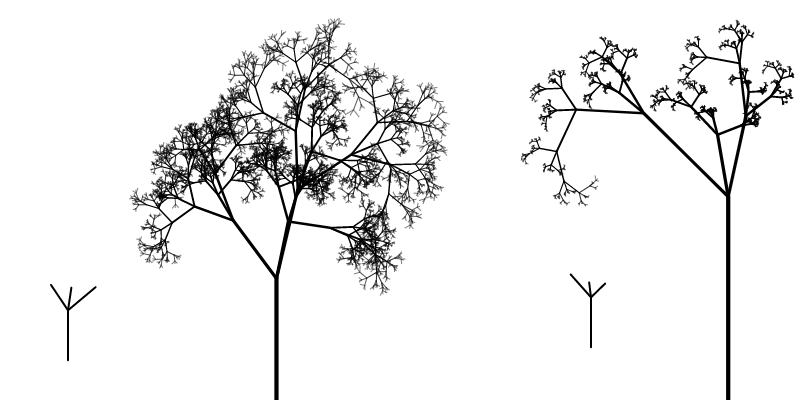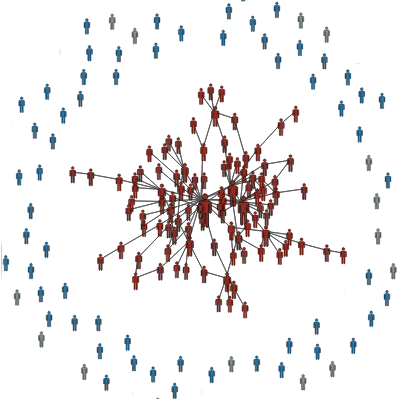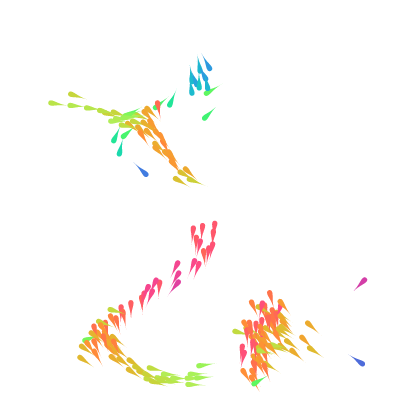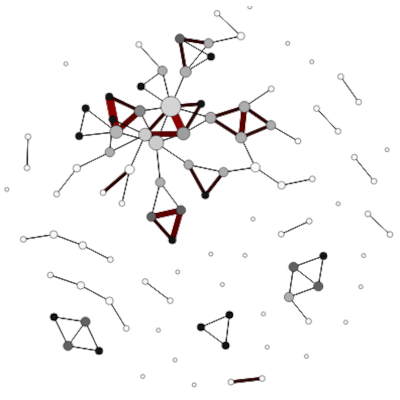Blockchains as coordination systems
Decentralisation is fractal. A decentralised organisation will take shape based on what the smaller parts do. The parts form the whole, the whole doesn’t control the parts.

Fractals in action: Here we see how repeating the same branch shapes define the overall tree shape. Try it yourself
MolochDAO is one of the most prolific fractal DAOs. It’s designed to stay small, and split if needed. As MolochDAO got more popular, it didn’t grow, it enabled hundreds more MolochDAOs to start, and you might have heard of some like DAOHaus and MetaCartel.
The larger DAOs are also fractalising from within. MakerDAO, Yearn, Synthetix have all seen working groups emerge. And a number of DAOs are now generating SubDAOs to manage specific resources. The underlying reason is the same: smaller groups coordinate better. Smaller groups are needed to get results.
These fractals go by different names. squads, working groups, subDAOs, teams… but the underlying approach is the similar:
Why is this shift happening?
Self-coordination works better, but only in smaller groups.
There’s a mathematical phenomenon behind this. Consider how many handshakes are needed for a group of a given size to all be in agreement.

One person? Zero handshakes! One person already agrees with themself.
Two people? One handshake. Three people? Three handshakes. Four people? Six handshakes. Five people? Ten handshakes. Ten people? 45 handshakes!
Now, consider that when people disagree, it usually doesn’t look like disagreement. They might try to be agreeable but end up prioritising things differently. They might agree at first but realise they can’t later. They might just get caught up and miss a call, so miss the chance to connect. In all of these cases, we have a handshake fail, and if that’s something the team depends on, it ripples out to create a bigger failure.
Usually these don’t look like failures, just delays and coordination headaches. Sound familiar?
Back to the math, let’s say that each handshake has a 90% likelihood of success, so a 10% liklihood of failure.
Two people have a 90% chance of success. Three have an 81% chance (0.9 ^ 2). Four people have a 72% chance (0.9 ^ 3) which is already a 28% chance of failure! If ten people try to agree on something where any two will agree 90% of time, the group of ten only have a 34% chance of agreeing!
When DAOs try to coordinate large project groups, especially groups where people can come and go every week, they have too many people to coordinate.
Some people argue that coordinating large groups requires centralised management, but looking at Amazon, Spotify, and the US Army Special Forces all show that keeping groups small isn’t only possible, it’s advantageous. Because small groups make better decisions, get more done, and coordinate among themselves.
We can have the benefits of decentralisation at scale because fractalisation removes coordination complexity rather than adding management overhead.
This gets a lot easier when you realise you don’t need to solve anything for the whole DAO. All you need to do start acting like a decentralised fractal yourself. Pick a small group to work with, pick a direction that works, and coordinate only with them.
This form of working will help your DAO progress towards decentralisation and autonomy.
Making this switch seems hard, but it’s usually just a matter changing a few work habits.
By the way, this site is designed for to help you fractalise Pick a few practices that make sense to you, share them with your immediate collaborators, then start.
If you’d like a playbook on this, check out The Speedboat Armada






